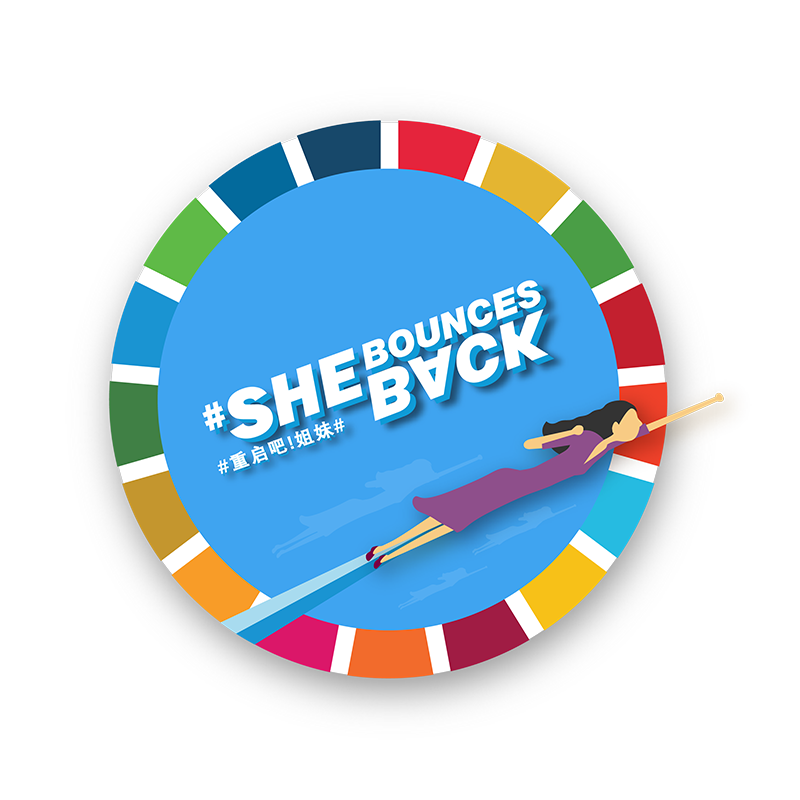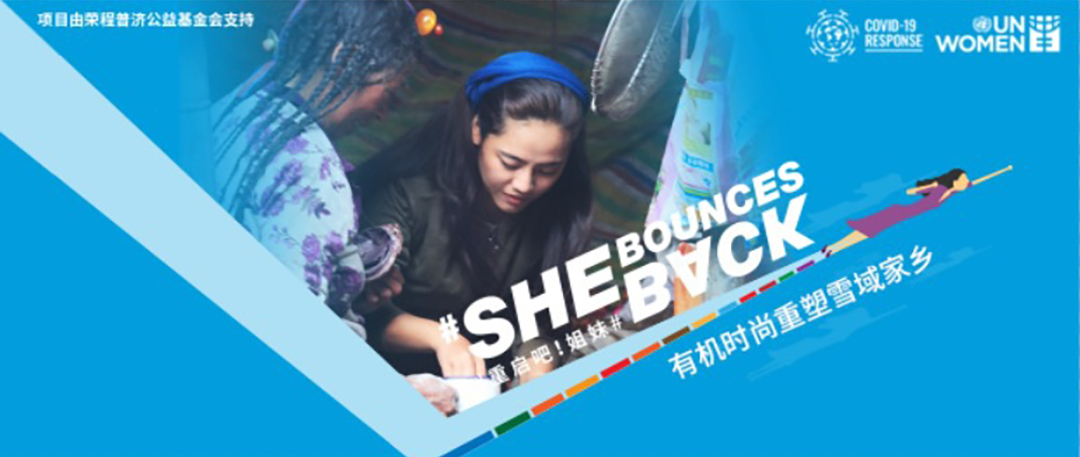
Sonam Chodron: Supporting natural livelihoods and healthy handwashing
After receiving a business management degree from a French university, Sonam Chodron used her new knowledge to start working with under-employed female highland herders and craftspeople from the region of her forest-clad Tibetan hometown. Her company, Kadhak, turns natural materials such as yak milk, honeycomb and wild herbs into sustainable organic products. Sonam Chodron, now in her late twenties, describes how she has used the pandemic as an opportunity to learn, reassess, innovate – and ultimately grow her business.
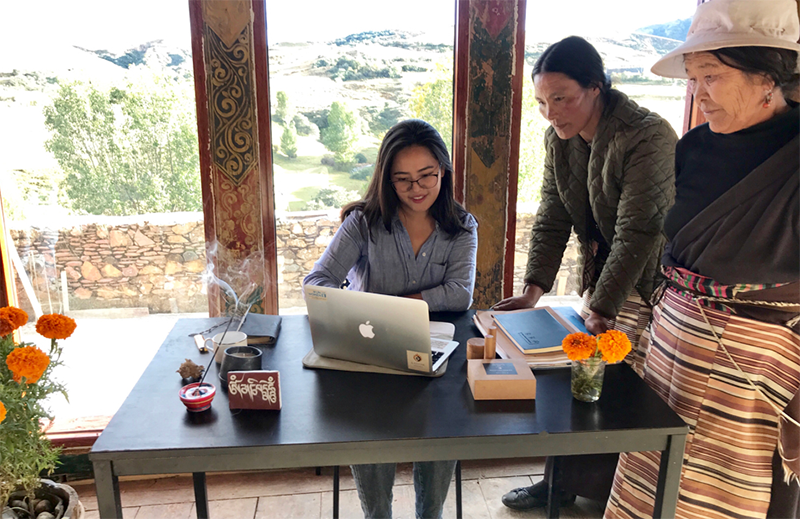
In her office in Jiawa, Sonam Chodron shares photos of the ocean, taken on holiday, with highland employees. Photo: Sonam Chodron
“Kadhak is a Tibetan word meaning ‘primordially pure’. It also symbolizes the beginning of all things and the goodness of nature. There are more than 2,000 villagers in Jiawa township but there are few local jobs; I wanted to help provide a more stable income for the women here. When I looked for a project, I found that people in the Tibetan areas have many skills that I could make use of as an entrepreneur, while the natural environment was also a rich source of opportunity. Yet I knew that care and innovation would be needed to ensure that local raw materials were shaped to meet the needs of a modern lifestyle, without destroying the local ecology.
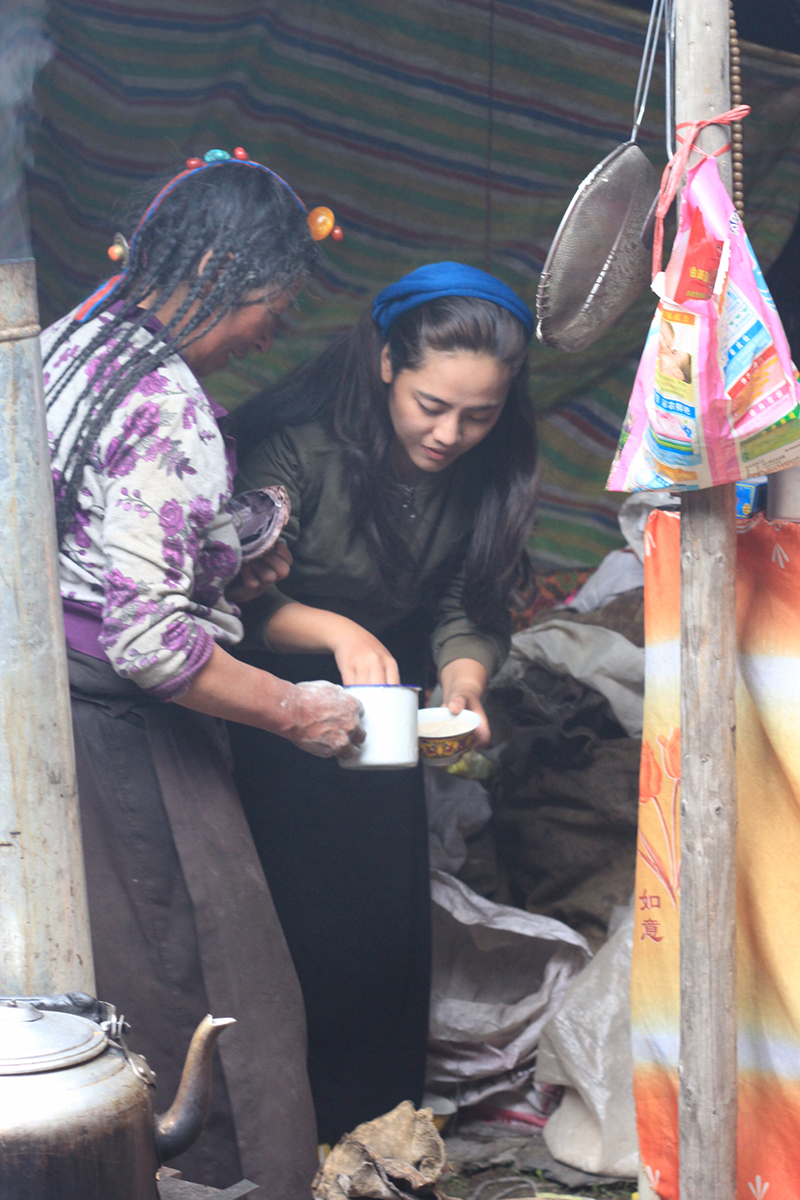
A highland herder (left) in Jiawa shows Sonam Chodron how the herders make butter from milk. Photo: Sonam Chodron
During the epidemic, our work was suspended for about three months and I was quarantined away from the Tibetan highlands in the city of Chengdu – nature had pressed the pause button on our lives. After the initial panic and anxiety I started to get used to such a slow life, and I began to enjoy the time to think.
Our company is still very young, and it’s helpful to be able to stop and think about its development from time to time. There are currently 16 people on the team, 12 of whom are local women and all relatively young. Taking advantage of this time window, I reassessed the company’s business and consumer needs, and considered how I should change our marketing approach now that people would be going outside less. I discussed ideas with peers and friends in my network, mainly online, and we shared experiences and technologies, which was very inspiring. I realized that the pandemic control measures would likely become a ‘new normal’, and that our company could only survive by meeting these new needs and changing our marketing approach.
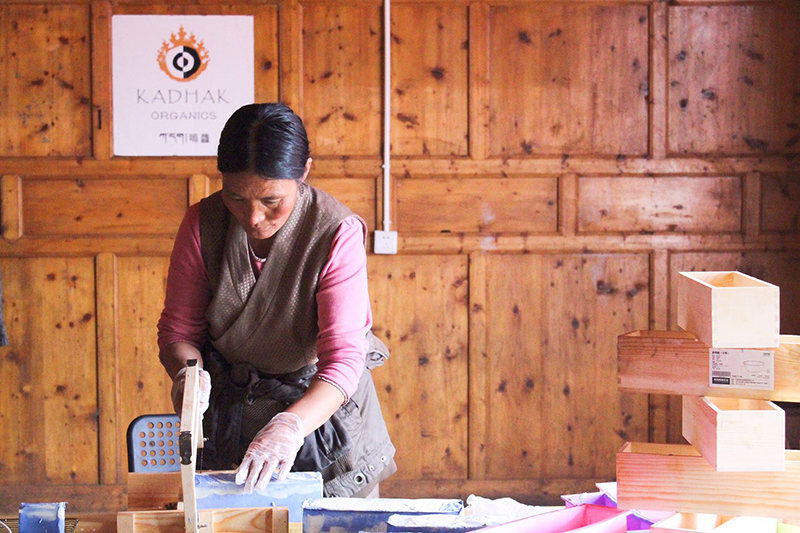
A highland herder prepares butter for sale under the Kadhak brand, in Jiawa. Photo: Sonam Chodron
We started by enhancing the sterilizing and disinfecting qualities of our products. We developed our own rinse-free hand disinfectant, and products to help young children develop hand washing habits.
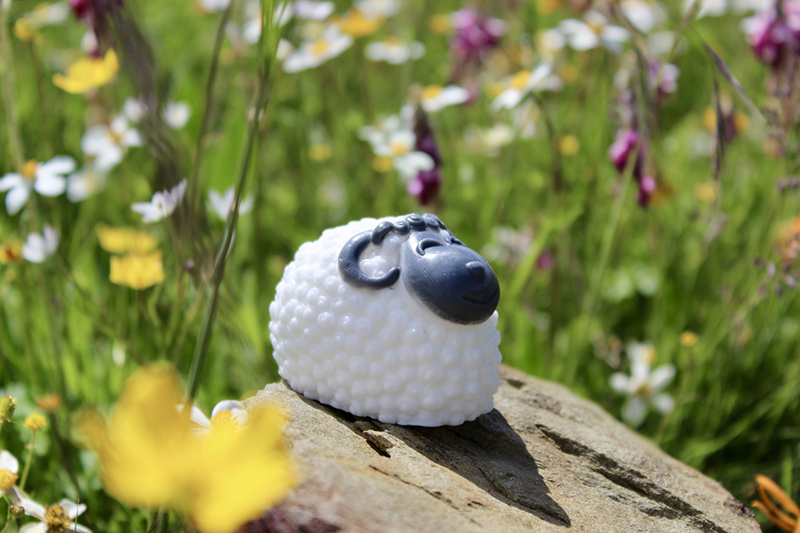
Kadhak’s organic sheep’s milk soap was developed to encourage hand washing among young children during the coronavirus pandemic. Photo: Sonam Chodron
Following these adjustments, sales of our yak milk handmade soaps continued to rise, in and outside of China, and the company’s revenue almost doubled. We made the bold decision to open a new store on a popular shopping street in Litang county, although we didn’t have much hope for its near-term performance; we just thought it was something we should do in order to grow. Yet surprisingly, our sales performance has not been at all bad and our store quickly became a hub for people to stop by and wash their hands. We’ve also started looking to supply our care products to hotel partners.
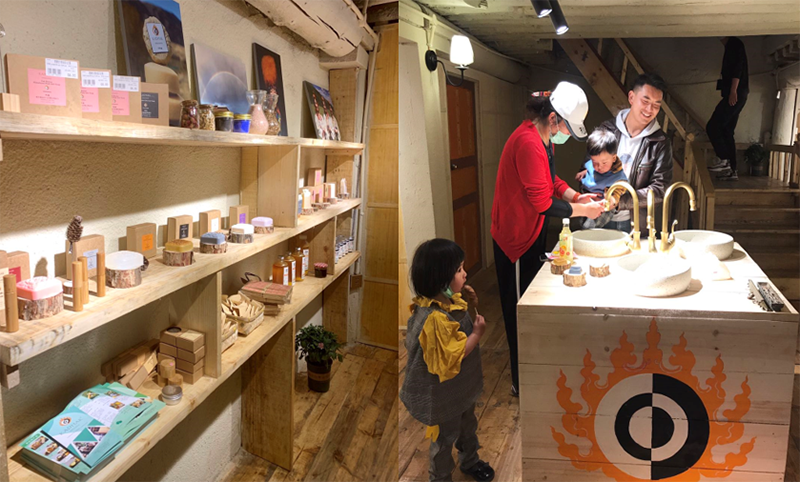
Kadhak’s store in Litang has become a trusted place for passersby to wash their hands. Photo: Kasey Kinsella
Our company and I are recovering from the pandemic crisis step by step and I feel like we’ve moved onto a newer, better track. I know that there are challenges ahead, but as our saying goes, ‘everything that changes will find a way forward.’ During this crisis I’ve learned that new opportunities present themselves if we just keep thinking outside of the box.”
